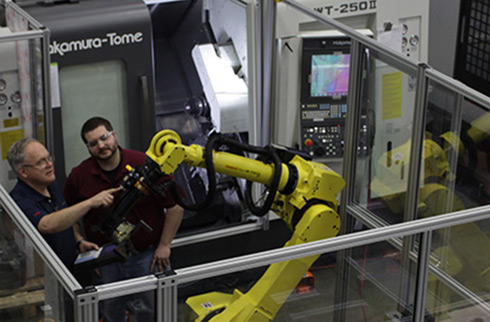
- Afrikaans
- Albanian
- Amharic
- Arabic
- Armenian
- Azerbaijani
- Basque
- Belarusian
- Bengali
- Bosnian
- Bulgarian
- Catalan
- Cebuano
- Corsican
- Croatian
- Czech
- Danish
- Dutch
- English
- Esperanto
- Estonian
- Finnish
- French
- Frisian
- Galician
- Georgian
- German
- Greek
- Gujarati
- Haitian Creole
- hausa
- hawaiian
- Hebrew
- Hindi
- Miao
- Hungarian
- Icelandic
- igbo
- Indonesian
- irish
- Italian
- Japanese
- Javanese
- Kannada
- kazakh
- Khmer
- Rwandese
- Korean
- Kurdish
- Kyrgyz
- Lao
- Latin
- Latvian
- Lithuanian
- Luxembourgish
- Macedonian
- Malgashi
- Malay
- Malayalam
- Maltese
- Maori
- Marathi
- Mongolian
- Myanmar
- Nepali
- Norwegian
- Norwegian
- Occitan
- Pashto
- Persian
- Polish
- Portuguese
- Punjabi
- Romanian
- Russian
- Samoan
- Scottish Gaelic
- Serbian
- Sesotho
- Shona
- Sindhi
- Sinhala
- Slovak
- Slovenian
- Somali
- Spanish
- Sundanese
- Swahili
- Swedish
- Tagalog
- Tajik
- Tamil
- Tatar
- Telugu
- Thai
- Turkish
- Turkmen
- Ukrainian
- Urdu
- Uighur
- Uzbek
- Vietnamese
- Welsh
- Bantu
- Yiddish
- Yoruba
tunnel washer system
The Tunnel Washer System A Revolution in Efficient Cleaning
In the modern industrial landscape, efficiency and cleanliness are paramount. As companies strive to meet high standards of hygiene while optimizing their operations, the tunnel washer system has emerged as a game-changer. This innovative technology is helping a wide range of industries—from healthcare to food processing—streamline their cleaning processes while ensuring immaculate results.
What is a Tunnel Washer System?
A tunnel washer system is a continuous washing machine designed to clean various items, from surgical instruments to industrial containers. Unlike traditional washers, which process items in batches, tunnel washers operate in a conveyor-like manner, moving items through a series of washing stages in a linear fashion. This design not only enhances throughput but also maximizes space, making it an ideal solution for facilities with high cleaning demands.
How It Works
The tunnel washer system consists of multiple compartments, each serving a different function in the cleaning process. Typically, the journey begins with a pre-wash stage where items are rinsed to remove loose debris. This is followed by a series of washing, rinsing, and drying stages. Throughout the process, the temperature and chemical concentration can be controlled precisely to ensure optimal cleaning without damaging the items.
In a typical setup, items enter the tunnel washer at one end and are gradually moved through each processing stage by a conveyor belt. The washing compartments may include different types of cleaning mechanisms, such as spray jets or immersion soaking. By the time items exit the tunnel, they are thoroughly cleaned, disinfected, and ready for reuse or packaging.
Advantages of Tunnel Washer Systems
1. Efficiency Tunnel washer systems can handle a high volume of items simultaneously, significantly reducing the time required for cleaning. This is particularly beneficial for facilities that rely on quick turnaround times, such as hospitals or food manufacturing plants.
tunnel washer system

2. Consistency Automated systems ensure that each item receives the same level of cleaning, reducing the risk of human error associated with manual washing processes. This uniformity is crucial in industries where hygiene is non-negotiable.
3. Space-Saving Design The compact nature of tunnel washers allows them to fit into areas with limited space, making them ideal for facilities that need to maximize their operational footprint.
4. Energy and Resource Efficiency Many tunnel washer systems incorporate advanced technologies that minimize water and chemical usage, leading to lower operational costs and a reduced environmental impact.
5. Customizable Manufacturers can tailor tunnel washer systems to meet specific needs, adapting features such as conveyor speed, washing temperature, and cycle duration based on the items being cleaned.
Applications Across Industries
The versatility of tunnel washer systems means they are applicable in a wide range of settings. In healthcare, they are essential for cleaning surgical instruments between procedures, ensuring that patients receive safe and sterile tools. In the food industry, tunnel washers help maintain hygiene in the cleaning of utensils, containers, and even packaging equipment.
Moreover, manufacturing plants utilize tunnel washers for cleaning parts and tools that come into contact with production materials. By streamlining the washing process, these systems contribute to overall productivity and operational efficiency.
Conclusion
In conclusion, the tunnel washer system represents a significant advancement in the field of industrial cleaning. By combining efficiency, consistency, and adaptability, these systems are transforming how organizations maintain cleanliness and hygiene. As industries continue to evolve, the adoption of tunnel washer technology will likely grow, setting a new standard for cleanliness and operational performance in various sectors. Investing in a tunnel washer system is not only a step toward modernizing cleaning practices but also a commitment to sustainability and quality in any organization.
-
Integrating Aqua Tunnel Car Wash in Shopping CentersNewsJun.24,2025
-
Gas Station with an Auto Car Wash MachineNewsJun.24,2025
-
Efficiency in Your Aqua Tunnel Car Wash: Power & Water-SavingNewsJun.24,2025
-
Car Wash Business with Advanced Auto Car Cleaning MachinesNewsJun.24,2025
-
Balancing Setup Costs with Aqua Tunnel Car WashNewsJun.24,2025
-
Aqua Tunnel Car Wash: Eco-Design for the Energy-Savvy EntrepreneurNewsJun.24,2025



